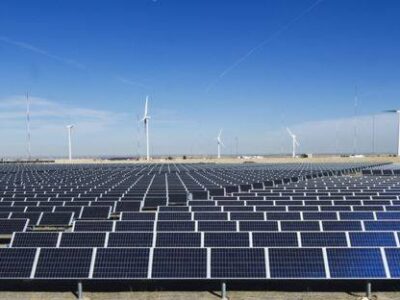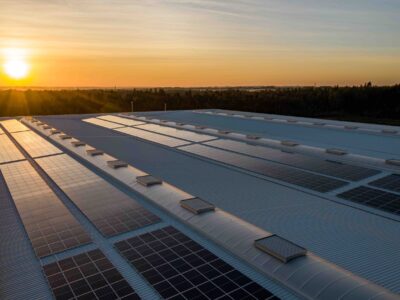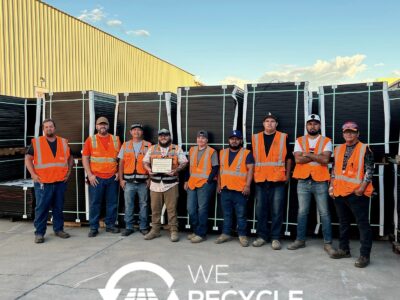(Bloomberg) —
The US and the European Union are leading a global push for the United Nations’ climate talks to endorse the tripling of renewables and doubling of energy savings by the end of the decade.
More than 60 countries are backing the targets to be included in the outcome of the UN’s forthcoming COP28 talks in Dubai, according to people with knowledge of the matter. Leaders from those nations are planning to join a call for action at a Dec. 2 meeting during the conference, they said.
The pledge is also promoted by the United Arab Emirates, the host of the climate talks running from Nov. 30 to Dec 12. Its objective would help keep global warming from rising by 1.5C, a critical threshold, according to the International Energy Agency and the International Renewable Energy Agency.
COP28 is due to set the direction for how to fight climate change over the rest of the decade, but there’s still a deep divide between developing and developed countries over how to cut greenhouse gas emissions and, more importantly, who should pay for the transition to greener energy.
Money, Oil and Fights Over Emissions: What to Watch at COP28
The push to triple renewable sources like wind and solar is supported by countries including Australia, Zambia, South Africa, Japan and Singapore. However, its fate will largely depend on China and India, which so far haven’t signaled endorsement. Decisions at the UN talks need unanimous backing from more than 190 countries.
“We invite all countries to join COP28’s pledge endorsing the tripling of global renewables capacity (reaching 11 TW by 2030) and doubling of the annual average global rate of energy efficiency improvements between now and 2030 (reaching 4%), and to come to COP with tangible commitments to realize this goal,” COP28 President Sultan Al Jaber wrote in a letter to parties of the climate conference earlier this week.
The planned pledge would outline steps needed to achieve clean energy goals such as ensuring greater financing — particularly in developing countries — bolstering power grids, improving permitting processes and designing market rules that encourage investment.
The coalition also argues that the targets would need to be accompanied by a shift away from “unabated“ fossil fuels that aren’t accompanied by emissions-removal technologies.
The definition of “unabated” is set to be one of the most contentious issues in Dubai. The UAE — a major oil producer — is among the biggest supporters of carbon capture and storage and sees a role for it to enable continued burning of dirty fuels in the future.
The 27-nation EU, which has a binding goal to become climate-neutral by 2050, believes such technologies should be used mainly for “hard-to-abate sectors” and shouldn’t be used to delay a phase-out of fossil fuels.
What Are COP Meetings For? Does It Matter Who Hosts?: QuickTake
(Updates with number of countries backing pledge from the second paragraph)
© 2023 Bloomberg L.P.





